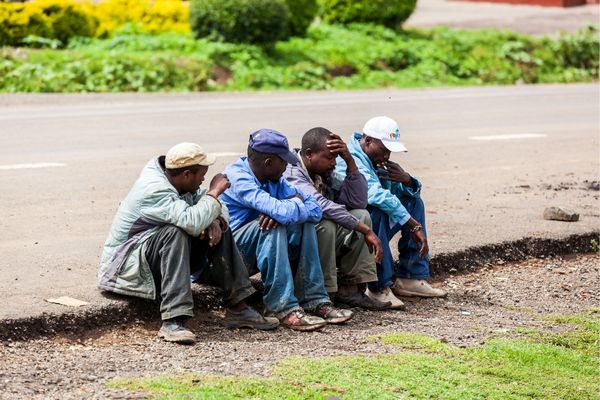Deadline: 14-Apr-23
The U.S. Embassy in Tanzania is now accepting applications for the Ambassador’s Special Self-Help Fund.
The Ambassador’s Special Self-Help program started in 1964 in Togo and quickly spread across the continent as a grass-roots assistance program that allows U.S. embassies to respond quickly to local requests for small community-based development projects. The program provides assistance to small, community-led projects that promise to have an immediate impact to Tanzanian communities as part of an ongoing commitment by the U.S. government to support Tanzanian -driven development activities at the local level. Since the program began in Tanzania, more than $2.2 million in awards have been disbursed to community development projects across the country.
Funding Information
- The maximum grant and eligible proposal submission is $10,000, converted to Tanzanian Shillings at the prevailing exchange rate. However, it is rare that projects are fully funded at that amount. Successful projects typically range between US$2,000 and $9,000. The U.S. Embassy reserves the right to provide assistance at a level other than the requested amount.
Eligible Projects
The most successful project proposals will:
- demonstrate a clear goal and impact that will benefit a large number of people within one year;
- present a clear plan to address a well-defined community need;
- be initiated and administered at a local level;
- demonstrate a significant commitment and contribution from the community;
- provide a clear and detailed budget, including pro forma invoices and estimates of the value of community contributions;
- demonstrate a clear sense of how the project will be implemented;
- contribute, whenever possible, to income-generating or self-sustaining activities; and
- respect human rights, gender equality, and environmental norms.
Eligibility Criteria
- The Embassy encourages the submission of any eligible proposal from registered community groups, non-governmental organizations, and civil society groups.
- The project must be initiated by the community and should benefit the community by increasing income or improving living or social conditions. If the project is designed to generate income, it must be truly community-based and not a for-profit enterprise or sole proprietorship, and the project must have a plan for equitable distribution of any income generated.
- Applicants must be a non-profit organization, NGO, or CBO registered with the Government of Tanzania, or a community association formed at least one year before the date of application.
- The proposed project should be a single activity that helps to improve basic economic or social conditions at the community level. Projects should be administered at the community level.
- The project should be sustainable and not require continued support after the one-time contribution from the Special Self-Help Program.
- Substantial community participation is required during the project. Contributions may include labor, materials, equipment, land, buildings, or funding.
- Projects must be within the ability of the community to operate and maintain sustainably.
- All projects must be completed within one calendar year of the grant award date.
- The maximum grant submission allowed is $10,000, converted to Tanzanian Shillings at the prevailing exchange rate.
Ineligible
The Ambassador’s Special Self-Help Program cannot fund:
- Military, law enforcement, police, or prison-related activities;
- Administration or operating costs of grant activities;
- Religious or political activities;
- Investment in personal businesses, for-profit enterprises, or sole-proprietorships;
- Activities with unmitigated and negative environmental consequences;
- Costs associated with events or ceremonies;
- Purchase of vehicles, office supplies, printers, copiers, computers, tablet computers, mobile phones, pesticides, herbicides, fungicides, surveillance equipment, luxury goods, or gambling equipment; or
- Activities that benefit any employee or immediate family member of an employee of the U.S. government.
For more information, visit U.S. Embassy in Tanzania.
